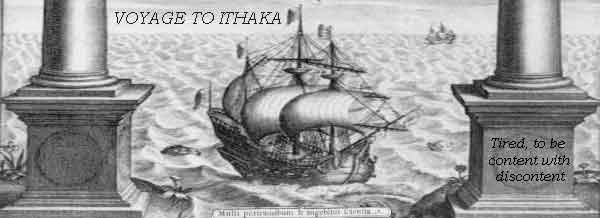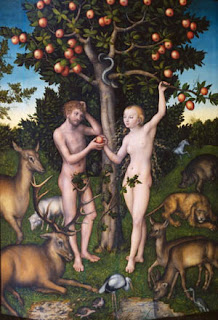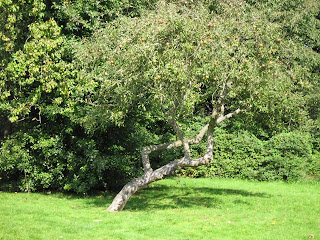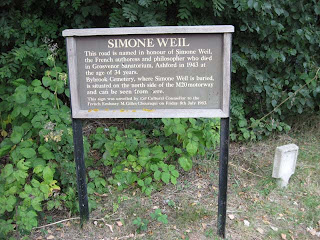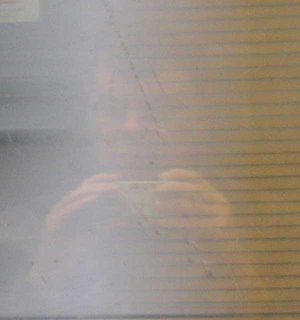Sunday, September 30, 2007
As an early music fan, I have a lot to thank David Munrow for. Although he died before I was interested in music, his influence on the early music scene and on so many of my favourite performers was profound. He had been at Pembroke College, Cambridge, a few years before me and people still talked about his astonishing college performance with a bagful of assorted pipes he'd collected on a trip to South America (indeed I've just heard Christopher Hogwood talk about that very concert on the Radio 3 programme about Munrow that provoked me to write this). Though I gather that one had to be careful in refering to him in Pembroke at the time, as he had apparently eloped with the wife of one of the dons. Even although at the time I wasn't musical, I remember the shock when I heard of his in 1976. His recordings delight me, but the interest and buzz he created have shaped my musical world so much that it's hard to imagine how much poorer my world would have been without his brief appearance, a comet flashing across the sky, for that short time 30-odd years ago.
Nasty moments
The shocking realisation that something is wrong before the brain can work out what it is:
Putting my hand in my pocket and finding my wallet not there.
Opening my office door and seeing no laptop on the desk.
Surfing to my favourite blog and seeing, instead of the familiar screen layout, the blue "Page not found".
Putting my hand in my pocket and finding my wallet not there.
Opening my office door and seeing no laptop on the desk.
Surfing to my favourite blog and seeing, instead of the familiar screen layout, the blue "Page not found".
Thursday, September 27, 2007
Patterns

Complicite's A Disappearing Number at the Barbican. A performance centred on the Indian mathematician Ramanujan and his relationship with G.H. Hardy, set against a present-day story. It's had nothing but rave reviews. Patterns throughout: mathematics, music, theatre. If I felt that the patterns emerged more clearly during the post-performance discussion than in the performance itself, that may reflect my own theatrical obtuseness rather than a lack of coherence in the piece itself. After all, if Marcus Du Sautoy feels that this play communicates the experience of mathematical creativity, who am I to disagree?
Tuesday, September 25, 2007
The universe is unnecessarily complicated!
I burnt the rice, so I undercooked the vegetables to compensate. Why didn't it taste good?
Saturday, September 22, 2007
The shock of silence
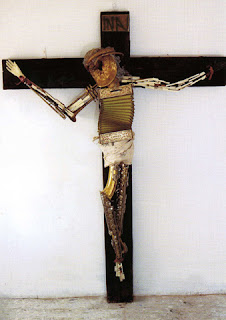
Guillermo Monroy's sculpture "The Sleeper" is currently in the Church of St James the Less, Vauxhall Bridge Road, London. It was powerful enough in his studio, but to see it in this impressive Victorian church adds another dimension. Guillermo's public talk last night discussed the literal and metaphorical power of the silent musical instruments that make up The Sleeper, in its theological context. Then members of the congregation spoke, often extremely movingly, about what the sculpture has meant to them.
When I saw this piece in Guillermo's studio a few weeks ago I thought it a masterpiece. Hearing others describe their emotional reactions confirms my judgment (not that I ever doubted it).
Sunday, September 16, 2007
Saturday, September 15, 2007
Voglio un casa - Convivencia
Three extraordinary "early music" concerts today. And all forcing thoughts about colonialism, racism, the enounters / collisions between cultures, the ethics of such concerts.
Jean-Cristophe Frisch and XVIII-21 Le Baqroque Nomade playing a Baroque concert from Beijing and telling us how music was a safe topic for discussion between the Jesuits and the Chinese, when they couldn't talk about religion or politics.
The amazing L'Arpeggiata under Christina Pluhars. Don't ever miss an opportunity to hear this group. I am glad to have lived to hear the King's Singers and L'Arpeggiata performing their version of Duke Ellington's Creole Love Affair. And the performance was memorable for the exuberant, virtuosic violin of Charles Edouard Fantin and guitar of Marcelo Vitale. And the sensational Lucilla Galeazzi. Feeling the smile spread across my face as she began each number was an experience I rarely remember in concerts:
Voglio un casa, la voglio bella,
Piena di luce come una stella
Piena di sole e di fortuna
E sopra il tetto spunti la luna
Pieno di riso, pieno di pianto
Casa ti sogno, ti sogno tanto
Dididindi, Dididindi ...
Voglio un casa, per tanta gente
La voglio solida ed accogliente,
Robusta e calda, semplice e vera
Per farci musica matina e sera
E la poesia abbia il suo letto
Voglio abitare sotto a quei tetto.
Dididindi, Dididindi ...
Such was the excitement and happiness of that concert that I wasn't sure how the final one of the day, Catherine Bott, David Miller, the 'oud player and singer Abdul Salem Kheir, and Stephen Henderson's Convivencia programme, exploring Spain in the period of the Reconquista when Christians and Moors apparently showed some tolerance of each other. I needn't have worried. Bott's singing was emotional; and she had equal impact when she recited English versions of some of the songs over the accompaniment to bring out the impact of the words.
These concerts were remarkable for their presentation of beautiful music in a complicated political and moral context.
Jean-Cristophe Frisch and XVIII-21 Le Baqroque Nomade playing a Baroque concert from Beijing and telling us how music was a safe topic for discussion between the Jesuits and the Chinese, when they couldn't talk about religion or politics.
The amazing L'Arpeggiata under Christina Pluhars. Don't ever miss an opportunity to hear this group. I am glad to have lived to hear the King's Singers and L'Arpeggiata performing their version of Duke Ellington's Creole Love Affair. And the performance was memorable for the exuberant, virtuosic violin of Charles Edouard Fantin and guitar of Marcelo Vitale. And the sensational Lucilla Galeazzi. Feeling the smile spread across my face as she began each number was an experience I rarely remember in concerts:
Voglio un casa, la voglio bella,
Piena di luce come una stella
Piena di sole e di fortuna
E sopra il tetto spunti la luna
Pieno di riso, pieno di pianto
Casa ti sogno, ti sogno tanto
Dididindi, Dididindi ...
Voglio un casa, per tanta gente
La voglio solida ed accogliente,
Robusta e calda, semplice e vera
Per farci musica matina e sera
E la poesia abbia il suo letto
Voglio abitare sotto a quei tetto.
Dididindi, Dididindi ...
Such was the excitement and happiness of that concert that I wasn't sure how the final one of the day, Catherine Bott, David Miller, the 'oud player and singer Abdul Salem Kheir, and Stephen Henderson's Convivencia programme, exploring Spain in the period of the Reconquista when Christians and Moors apparently showed some tolerance of each other. I needn't have worried. Bott's singing was emotional; and she had equal impact when she recited English versions of some of the songs over the accompaniment to bring out the impact of the words.
These concerts were remarkable for their presentation of beautiful music in a complicated political and moral context.
WTF ...
"What the fuck are you doing?" (Barry Ferguson to James McFadden, Parc des Princes, 12/11/2007)
Wednesday, September 12, 2007
Sunday, September 09, 2007
Tuesday, September 04, 2007
Alberto de Lacerda (1928-2007)
I read that the poet Alberto de Lacerda has died. His poetry had many admirers: the obituary suggests that he might have been a candidate for the Nobel Prize. Seeing his photo with the obituary, I fel I must have seen him in galleries or at concerts. "His one-bedroom flat in Battersea became an extraordinary archive of his life and times but by depressing turns unvisitable, irreparable and eventually, by common standards, uninhabitable." (John McEwen)
Aos outros levarei a felicadade
Que a mim obscuramente foi negada.
Aos outros levarei a felicadade
Que a mim obscuramente foi negada.
